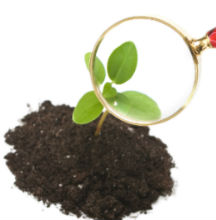Flowers
-
Continue to cut-back early perennials and annuals to promote fall rebloom
-
Watch for Japanese beetles and pick them off into soapy water in the early morning before they wake up
-
If perennial foliage looks bad, cut it back for regrowth (bee balm, hostas, and other durable plants)
-
Continue to deadhead roses; watch for powdery mildew and remove any fallen or diseased leaves (do not compost); make sure plant has good air circulation
-
Continue to check for signs of disease or insect damage and treat accordingly
-
Water container plants frequently as they dry out faster
-
Weed!
Garden
-
Weed!
-
Prune and destroy blackberry and raspberry canes that bore fruit this year – they will not produce again and may harbor pests; prune 3-4” off tops
-
Watch for blight and leaf spot on tomatoes
-
Fertilize day-neutral strawberries with manure tea or 5-10-5 organic fertilizer
-
Harvest onions and potatoes after tops yellow and die
-
Propagate herb cuttings; deadhead basil; if pruning herbs, dry them for winter use (put them in the microwave between paper towels for 1 minute)
Lawn
-
Prune ground cover as needed
-
Watch for lawn diseases
-
Remove hiding places for undesirable insects, like earwigs (boards, firewood, etc.)
-
Remove any standing water that can breed mosquitoes (gutters, old tires, etc.)
-
Keep grass longer (3”) to protect it from high heat and control crabgrass
-
During extreme heat, conserve water by allowing the lawn to go dormant
-
Pour boiling water on unwanted grass and weeds in driveways and sidewalks
-
Rake away the slime mold “dog vomit fungus” that may appear in mulched areas following rainy periods – it’s harmless
Trees/Shrubs
-
Watch for cedar apple rust (as well as quince and hawthorn rust), although the spots appear now, infection occurs during April and May so treatment now has no impact
-
Watch for powdery mildew
-
Use sulfur as a natural, general-purpose fungicide: either as a dust, or mixed with water to be sprayed
-
Look for the beginning of bagworms (about ½”) and handpick
This is the time of the year for pests. Integrated Pest Management is a combination of appropriate pest control tactics. Contact the Master Gardener Helpline for information.
Visit the Loudoun County Master Gardener Demonstration Garden at Ida Lee Park in Leesburg to see various gardens and new planting techniques.
Contact the Loudoun County Master Gardener Help Desk with your questions: 703-771-5150 or loudounmg@vt.edu




